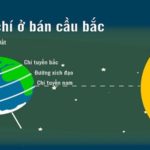The Winter Solstice is one of the most important festivals in the year and a time for unique ceremonies in China. Join Bach Hoa XANH as we explore the meaning of Dong Zhi and the preparations needed for this festive occasion!
See also: Is Quy Mao 2023 a lucky hour for the whole year?
1 Meaning of Dongzhi Festival
According to Chinese customs, the Winter Solstice marks the beginning of the coldest winter days and is a time for family reunions, with children returning home.
Moreover, there is a saying, “The Winter Solstice is as important as the Spring Festival”, emphasizing the significance of this occasion. Hence, despite their busy schedules, Chinese families will take the time to prepare a grand Dong Zhi feast, preserving cultural traditions and praying for a warm and harmonious winter with their loved ones.
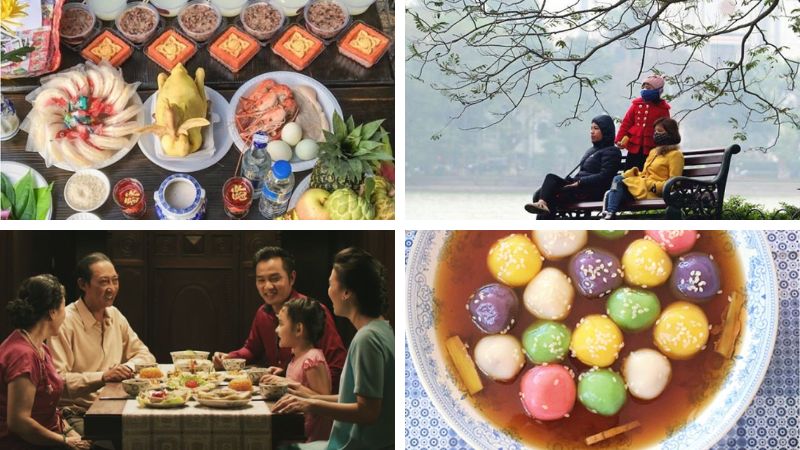 Meaning of the Winter Solstice
Meaning of the Winter Solstice
2 What to Prepare for the Winter Solstice Ceremony?
During the Dong Zhi Festival, most Chinese families take a break from their daily routines to reunite and celebrate with feasts, rituals, and offerings to deities and ancestors.
Ancestral Offering
The ancestral offerings during the Winter Solstice are similar to those prepared for other festivals, including essential items such as incense, joss paper, spirit money, paper clothes, wine, candles, a fruit platter, cakes, and fresh flowers…
Additionally, depending on regional customs and family traditions, some savory dishes may be added or omitted.
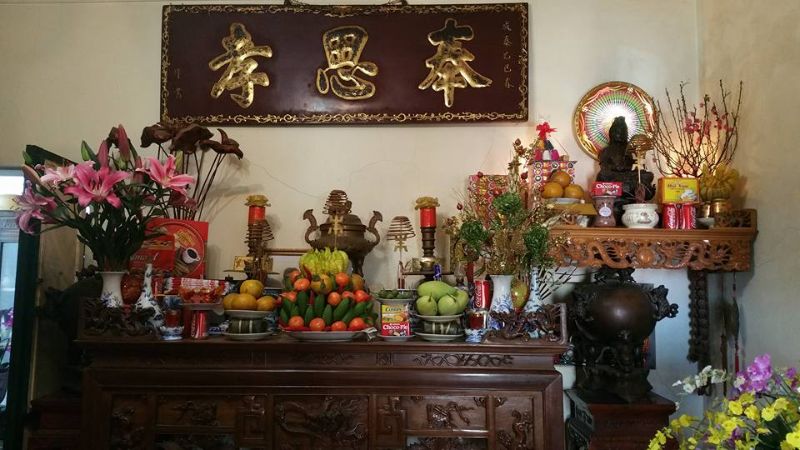 Ancestral Offering
Ancestral Offering
Offering for the Deities
The offerings for the deities placed outside the house also vary based on local customs and economic conditions. However, some essential items include fresh flowers, a fruit platter, wine or water, joss paper, spirit money, incense, and traditionally, steamed buns.
In some regions, a boiled chicken or a plate of sticky rice is added to enhance the offerings.
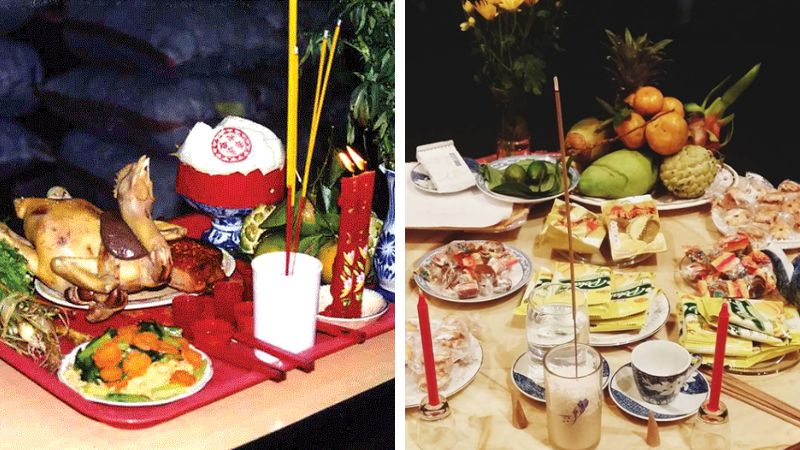 Offering for the Deities
Offering for the Deities
3 Traditional Dong Zhi Cuisine
Tang Yuan (Glutinous Rice Balls) – 汤圆
Perhaps due to the symbolism of family reunion associated with this dish, Tang Yuan is a popular choice for most significant Chinese festivals. Additionally, the image of the entire family making Tang Yuan together is considered a distinctive feature of the Winter Solstice celebration.
See also:
 Tang Yuan (Glutinous Rice Balls) – 汤圆
Tang Yuan (Glutinous Rice Balls) – 汤圆
Wontons and Dumplings – 水饺
Similar to Tang Yuan, wontons and dumplings are traditional dishes with a long history. Their shape resembles gold ingots, and their warm colors are believed to bring good fortune when consumed during the Winter Solstice. These dishes also provide warmth and comfort during the cold winter days.
See also:
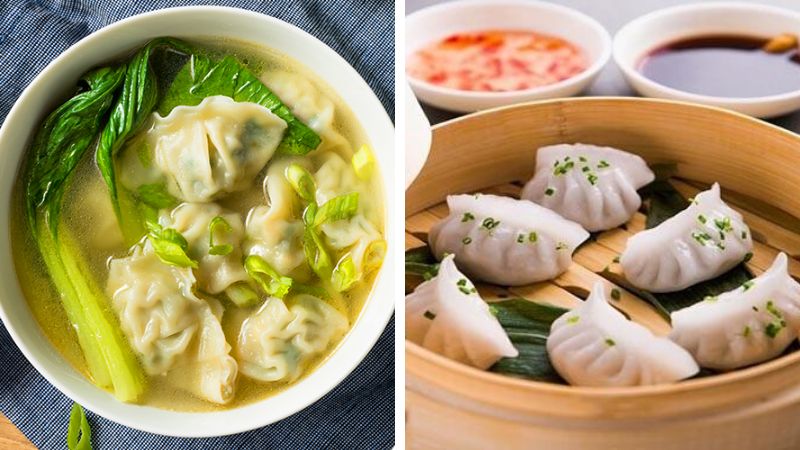 Wontons and Dumplings – 水饺
Wontons and Dumplings – 水饺
Dong Zhi Wine – 冬至酒
Dong Zhi Wine is made from Shaoxing wine and is traditionally used for offerings during the festival. Even today, it remains a favorite among the Chinese for its sweet, mild, and fragrant taste. A cup of this wine not only warms the body but also serves as a way to remember the deceased and honor ancestors during family meals.
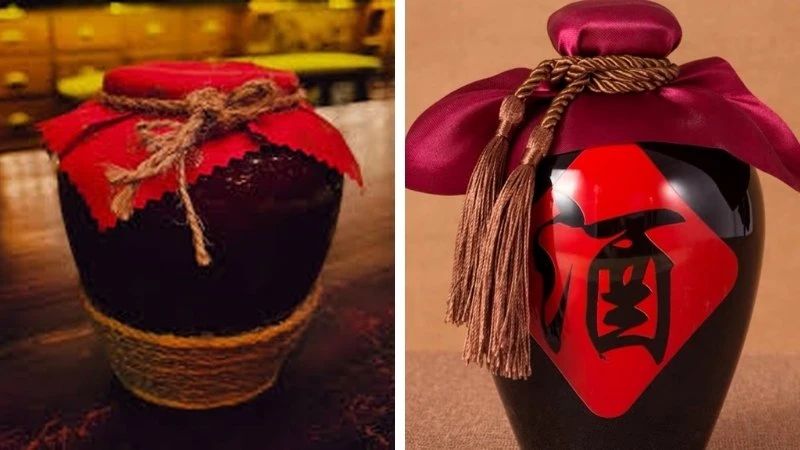 Dong Zhi Wine – 冬至酒
Dong Zhi Wine – 冬至酒
Nine-Layer Cake (Pork Floss Cake) – 千层糕
Offering the Nine-Layer Cake to ancestors is an indispensable tradition during Dong Zhi for Taiwanese people. With its vibrant colors, sweet taste, and chewy texture, this cake is perfect to enjoy with hot tea alongside your family.
See also:
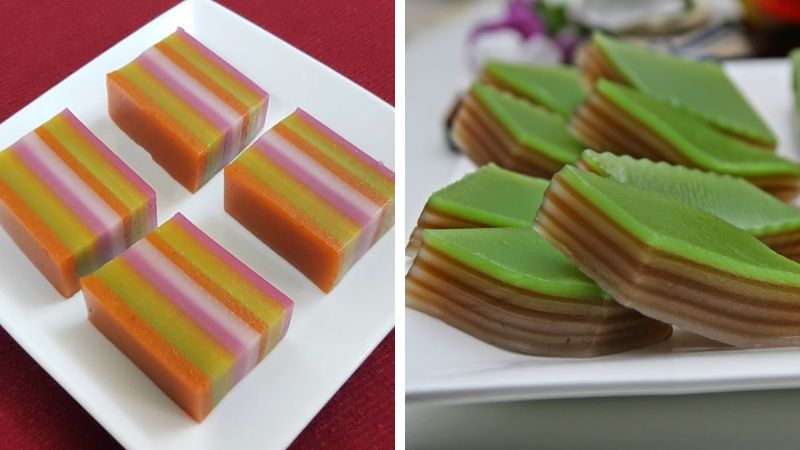 Nine-Layer Cake (Pork Floss Cake) – 千层糕
Nine-Layer Cake (Pork Floss Cake) – 千层糕
4 “Dong Jiu Jiu Song”
After the Winter Solstice, the coldest days of winter arrive, according to Chinese folk beliefs. This period is said to last for nine sets of nine days, or 81 days, with each set of nine days representing a different phase of winter, known as a ‘jiu.’
The 81-day cycle of the Winter Solstice is captured in a well-known folk song called “Dong Jiu Jiu Song”:
“Yi jiu, er jiu, bu chu shou,
San jiu, si jiu, bing shang pao,
Wu jiu, liu jiu, liu hen wang liu,
Qi jiu he kai, ba jiu yan lai,
Jiu jiu jia yi jiu, kang niu bian di pao”.
Translated:
“First jiu, second jiu, hands stay in pockets,
Third jiu, fourth jiu, walking on ice,
Fifth jiu, sixth jiu, willows by the river,
Seventh jiu ice melts, eighth jiu swallows arrive,
Ninth jiu, winter ends, cattle return to the fields”.
 “Dong Jiu Jiu Song”
“Dong Jiu Jiu Song”
Golden Bell Rings: 3-year luck rises, 1-year plans easily come true on Winter Solstice
Winter Solstice is one of the 24 solar terms in the year, occurring after the Great Snow and before the Lesser Cold. In feng shui, the day of Winter Solstice corresponds to the hexagram Renewal in the Book of Changes. At this time, the presence of yang energy becomes evident and gradually strengthens.


























